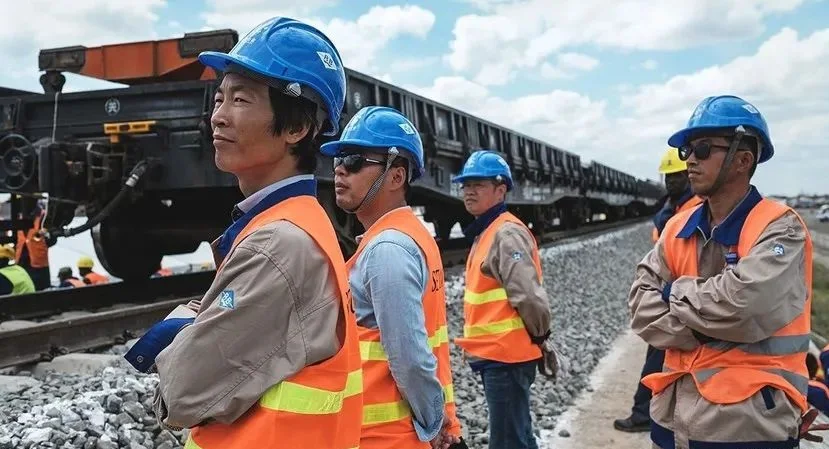
Military aid, “soft-power” loans and tariff-free trade are the pillars of a new Chinese push to shape the Horn of Africa, Beijing signalled this week at the region’s Third Conference on Peace and Development.
Beijing’s message: “Here to stay”
At the two-day forum in Kampala, China’s special envoy for the Horn of Africa, Xue Bing, told delegates from eight East African states that Beijing would “actively participate” in both peace talks and economic recovery. His remarks underscored what diplomats described as China’s clearest pledge yet to entrench itself as the region’s indispensable partner.
Railways, roads—and leverage
Infrastructure sits at the core of the strategy. China already finances more African infrastructure than any other nation, backing more than 20 per cent of ongoing projects and building roughly one-third of them outright. Flagships include the Addis Ababa–Djibouti standard-gauge railway and the Tanzania–Zambia link.
Trade figures illustrate the scale: China–Africa commerce hit a record US $ 295.6 billion in 2024, up 4.8 per cent year on year, with momentum continuing in Q1 2025. Last month Beijing went further, waiving all import duties for 53 African countries (Eswatini excepted)—a move analysts see as locking in African supply chains to the Chinese market.
Small-business focus and “security diplomacy”
Beyond mega-projects, China has funded loans worth more than 2 billion yuan (≈ US $ 275 million) to over 350 African small and medium-sized enterprises, creating thousands of jobs in manufacturing, energy and farming. Officials argue that embedding Chinese capital along local value chains will yield deeper, longer-lasting influence than large one-off deals.
On the security side, China’s footprint is expanding—from UN peacekeepers in South Sudan to a naval and logistics base in Djibouti that has evolved into what defence analysts call a fully fledged “protection hub” for Chinese interests. The hard-power vector is packaged under Beijing’s Global Security Initiative, promoted as “co-operation without hegemony” and channelled largely through the African Union and IGAD frameworks.
Limits of the model
Yet scepticism persists. In civil-war theatres such as Sudan and Ethiopia, Beijing has preferred “economics first” over high-risk mediation, prompting critics to question whether infrastructure and credit alone can resolve entrenched ethnic and political conflicts. Regional observers warn that without a more robust diplomatic toolkit, China could find its projects hostage to the very instability it seeks to dampen.
With Western influence receding, China is laying both literal and geopolitical tracks across the Horn of Africa. Whether that translates into lasting stability—or sparks a new contest for dominance—will depend on how deeply Beijing is willing to engage when economics collide with hard security realities.
